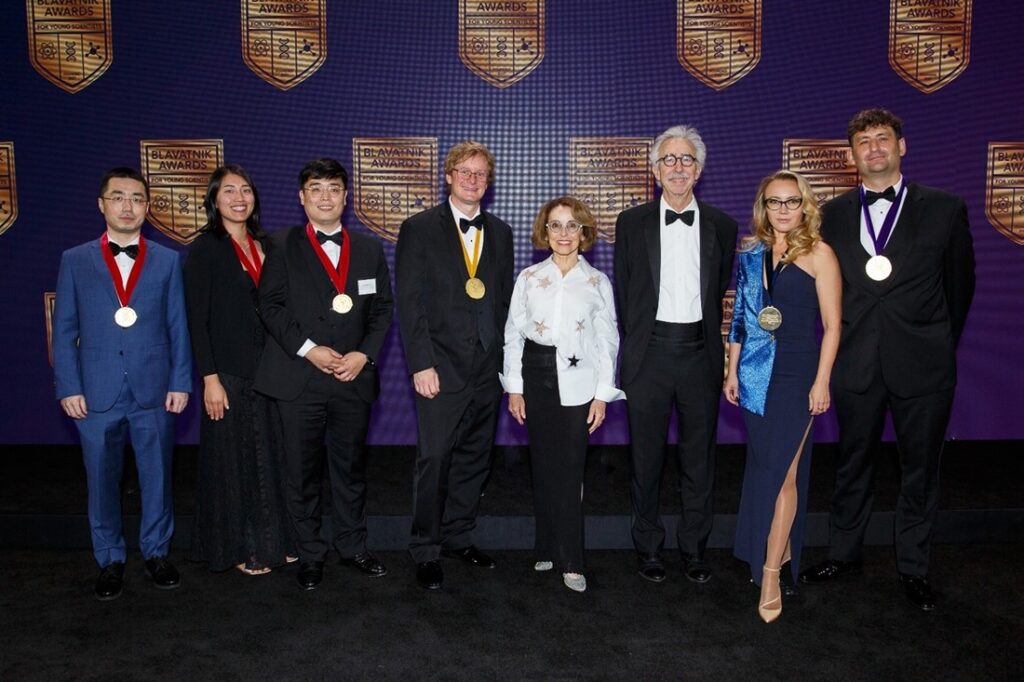5 Reasons Scientific Prizes Are Good For The World
If athletes and celebrities can be recognized for their achievements, why can’t scientists?
By Brooke Grindlinger, PhD

Every October, the world learns who will be the newest members of a very elite circle known as Nobel Laureates.
Whether or not you agree with the selection committee’s choices, the Nobel Prize is considered a career pinnacle of success and the annual announcement continues to captivate the media and general public in addition to the scientific community. This in part is due to the hefty prize purse, roughly $1.1 million, but also because of the body of work that the winners represent and its contributions to societal advances.
At the New York Academy of Sciences, we believe prizes like the Nobel and others help to advance scientific discovery, which in turn is good for the world. And if athletes and celebrities can be recognized for their achievements why shouldn’t scientists? But we also believe that acknowledgement of early-career work is equally important.
We administer two scientific prizes that in the past 15+ years have helped boost the careers of more than 450 young scientists pursuing unconventional ideas and new directions with the fearlessness and creativity of youth: the Blavatnik Awards for Young Scientists and the Innovators in Science Award. While many people may be familiar with the concept of a science grant, the purpose of a scientific prize—such as the Nobel or the Blavatnik Awards—may be less clear. Here are just a few of the reasons scientific prizes are important to the pursuit of science, the scientific community, and the public, at large.
1. Recognition
In addition to receiving cash and prestige, awardees receive recognition for their instrumental role in making key advances in areas of science in the service of humanity. This type of recognition can lead to acceptance of a paradigm-shifting idea, allocation of funding and resources to a particular area of research, and increased awareness of a research topic. For rising young talent, it can cement the shift from local player to the global stage. And while not every discipline’s importance may be readily understood by lay audiences, such as Astrophysics or Mathematics, the attention drawn from the award can still confirm the importance of the achievement.
2. Platform
Scientists are not always the most proactive advocates for their own work. So a nomination for an award, typically made by nominees’ respective institutions and/or colleagues, is itself a validation of their work. Being one’s own spokesperson also involves flexing a set of communication skills, not often utilized in the lab. Whether it is vying for a nomination, distilling complex ideas for a broader audience or giving TV or radio interviews about the research—these experiences help scientists fine-tune their skills in communicating science, not only to other scientists and stakeholders, but to funders and the general public.
3. Public Awareness and Engagement
Media buzz around awards can boost public awareness and engagement in science. Scientific innovation continues to shape the nature of modern life as we know it: from antibiotics and vaccination to the internet and smartphones. Actively promoting the role of science, and scientists, in the development of the tools and technologies we often take for granted today, reinforces the need for continued public funding of science. The voices of scientists and a scientifically literate public are equally important in the critical ongoing dialogue on science and evidence-based policy-making.
4. Role Models
Awards create positive role models in the scientific community. These men and women, drawn from across the globe, inspire young students to pursue careers in science, and drive current scientists to strive for excellence. Both are key to maintaining a strong pipeline of talent in STEM and essential if America is to remain competitive in a global economy.
5. Flexibility
As the funding climate for scientific research continues to grow increasingly challenging, awards can help ease financial tensions, whether personal or in the lab. More stable funding allows scientists to take on additional or high-risk, high-return projects not otherwise supported by traditional avenues of funding.
By recognizing and honoring those individuals that have made significant contributions to science, through the presentation of scientific awards, we continue to elevate the bar of scientific progress and its positive impact on humanity and promote the breakthroughs in science and tech that will define how our world will look over the next century.
This post was originally published on LinkedIn and has been updated.
Warning: Undefined variable $showit in /var/www/nyas_develop/nyas/public/wp-content/themes/nyas-theme-child/includes/shortcodes.php on line 1802
